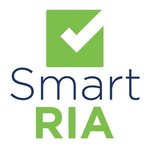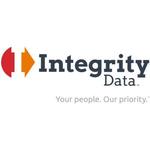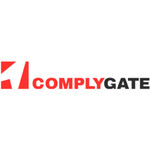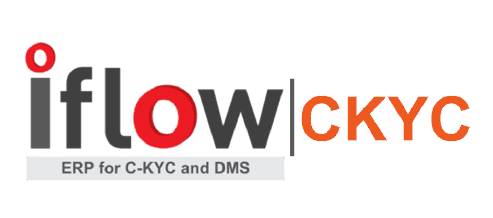Description

ETQ Platform

Smart RIA
Comprehensive Overview: ETQ Platform vs Smart RIA
ETQ Platform
a) Primary Functions and Target Markets
The ETQ Platform is a comprehensive enterprise quality management software (EQMS) designed to streamline processes, ensure compliance, and improve overall quality across various industries. It provides a suite of modules such as document control, nonconformance tracking, corrective and preventive actions (CAPA), risk management, audit management, and more. The platform is designed to support organizations in maintaining regulatory compliance, enhancing operational efficiency, and minimizing risks.
Target Markets:
- Manufacturing
- Life Sciences (Pharmaceuticals, Biotechnology, Medical Devices)
- Food and Beverage
- Electronics
- Automotive
- Other industries requiring stringent quality management and compliance
b) Market Share and User Base
ETQ enjoys a solid presence in the EQMS market with a strong user base across multiple industries. While specific market share figures can be difficult to ascertain due to the diversity of the sector, ETQ is considered a leading player given its comprehensive solutions, scalability, and ability to address sector-specific regulatory requirements.
c) Key Differentiating Factors
- Modularity and Customizability: ETQ offers a wide array of modules that can be customized to fit the specific needs of an organization, providing flexibility in deployment and usage.
- Compliance and Risk Management: Strong focus on compliance with industry standards and regulations, making it suitable for highly regulated industries.
- Integration Capabilities: Seamless integration with other enterprise systems like ERP, PLM, and CRM.
- Scalability: Designed to serve both mid-sized enterprises and large corporations, supporting scalability as a company grows.
- User Experience and Interface: User-friendly interface that enhances user experience and simplifies the adoption process for organizations.
Smart RIA
a) Primary Functions and Target Markets
Smart RIA is a cloud-based software specifically designed for the financial services industry, particularly for registered investment advisors (RIAs), to help manage compliance processes, reduce risks, and ensure regulatory adherence. It provides features such as compliance task management, document storage, ADV management, audit support, and more.
Target Markets:
- Registered Investment Advisors (RIAs)
- Broker-dealers
- Financial advisors
- Compliance consultants
- Other financial professionals needing regulatory compliance solutions
b) Market Share and User Base
Smart RIA has carved out a niche within the financial services sector by focusing specifically on compliance for RIAs and related entities. While it may have a more limited user base compared to broader EQMS platforms like ETQ, it is highly regarded within its specific niche due to its specialized functionality and expertise in SEC compliance.
c) Key Differentiating Factors
- Industry-Specific Focus: Tailored specifically for the financial services industry, particularly RIAs, offering specialized compliance tools not covered by more general EQMS providers.
- Compliance Automation: Advanced automation features for compliance tasks, tailored workflows, and alerts to help advisors maintain regulatory adherence without extensive manual effort.
- Regulatory Updates: Regular updates to comply with evolving financial regulations, reducing the burden on advisory firms to stay current with legal requirements.
- Ease of Use: Designed to be intuitive for financial professionals, requiring minimal training to implement and use.
- Customer Support and Consulting: Offers extensive support and consulting services to aid financial firms in implementing effective compliance strategies.
Comparison and Conclusion
ETQ Platform and Smart RIA cater to different markets with distinct needs, primarily focusing on quality management across various industries and compliance in financial services, respectively. Their differentiation stems from the breadth of services (ETQ's wide-ranging industry applications versus Smart RIA's niche focus on financial compliance) and their tailored approach to specific regulatory environments. While ETQ boasts broader applications and integration capabilities, Smart RIA provides industry-centric solutions crucial for financial advisors. Consequently, their market share and user bases reflect these orientations: ETQ in diverse, compliance-intensive sectors and Smart RIA in the specialized realm of financial services compliance.
Contact Info

Year founded :
Not Available
Not Available
Not Available
Not Available
Not Available

Year founded :
Not Available
Not Available
Not Available
Not Available
Not Available
Feature Similarity Breakdown: ETQ Platform, Smart RIA
When comparing ETQ Platform and Smart RIA, two software solutions primarily focused on governance, risk, and compliance management, it's important to recognize both their overlapping functionalities and distinct features. Here's a breakdown covering core features, user interfaces, and unique characteristics:
a) Core Features in Common:
- Compliance Management: Both platforms offer tools to ensure organizations meet industry-specific regulatory requirements.
- Risk Management: These products provide functionalities to identify, assess, and mitigate risks within an organization.
- Audit Management: Each platform includes components for planning, conducting, and reviewing audits.
- Document Control: Both systems facilitate document management capabilities to ensure proper documentation and filing required for compliance and auditing processes.
- Reporting and Analytics: They provide robust reporting and analytics to generate insights from compliance and risk data.
- Workflow Automation: Both solutions offer automation tools to streamline compliance processes and reduce manual workload.
- Security Features: Offering role-based access controls to protect sensitive information, ensuring that only authorized users can access specific data.
b) User Interface Comparison:
-
ETQ Platform: Known for its flexible and user-friendly interface, ETQ Platform often emphasizes customization, allowing users to tailor dashboards and reports according to their specific needs. It’s designed to be intuitive and accessible, providing a smooth user experience with minimal training.
-
Smart RIA: This platform also offers a user-friendly interface, but it's more streamlined specifically for financial advisory compliance needs. Its UI design focuses on simplicity and ease of use, catering particularly to smaller firms that require straightforward navigation and quick access to relevant compliance tools.
c) Unique Features:
-
ETQ Platform:
- Configurability and Scalability: ETQ is known for its highly configurable nature, allowing users to adapt the platform to various compliance needs across different industries.
- Integration Capabilities: Strong emphasis on integration with a wide range of enterprise applications, facilitating seamless data exchange and process continuity.
- Advanced Risk Assessment Tools: Provides more complex risk modeling and analysis tools that can be tailored to numerous risk management scenarios.
-
Smart RIA:
- Focus on Financial Industry Compliance: Smart RIA has features specifically designed for Registered Investment Advisors (RIAs), such as built-in compliance checklists and workflows tailored to financial regulations.
- Client-Facing Features: Offers capabilities for client communication and management that are particularly useful for small to medium-sized financial advisory firms.
- Affordability and Bundled Services: Often considered a more budget-friendly option for smaller firms, with pricing plans that bundle essential services needed by RIAs.
In summary, while both ETQ Platform and Smart RIA cater to compliance and risk management, they serve slightly different niches and user needs, with ETQ being more adaptable across industries and Smart RIA focusing specifically on financial sector compliance.
Features

Quality Management Tools
Risk and Compliance
Collaboration and Communication
Data Insights

Task Management
Compliance Management
Data Security
Client Management
Best Fit Use Cases: ETQ Platform, Smart RIA
ETQ Platform and Smart RIA are designed to serve different compliance and regulatory needs across various industries, each offering unique capabilities tailored for specific business requirements. Here's how each product fits into different business contexts:
ETQ Platform
a) Best Fit Use Cases for ETQ Platform:
-
Highly Regulated Industries: ETQ Platform is well-suited for industries with stringent regulatory requirements such as pharmaceuticals, biotechnology, medical devices, and manufacturing. Its robust quality management system (QMS) helps manage compliance with regulations like FDA, ISO, and other international standards.
-
Manufacturing and Logistics: Companies in manufacturing and logistics benefit from ETQ’s capabilities to streamline supplier quality management, enhance production processes, and ensure product quality.
-
Aerospace and Defense: Due to the highly controlled environments and strict compliance needs, aerospace and defense companies can rely on ETQ for document control, risk management, and continuous improvement processes.
-
Large Enterprises and Multi-Site Operations: The platform supports scalability and integration, making it a preferred choice for large organizations with complex, multi-site operations that require centralized control over their quality and compliance processes.
Smart RIA
b) Preferred Scenarios for Smart RIA:
-
Financial Services and Investment Firms: Smart RIA is tailored to meet the specific compliance needs of financial advisory firms and investment companies, particularly focusing on adhering to SEC, FINRA, and other financial regulatory bodies.
-
Wealth Management and Retirement Planning Services: Companies providing retirement planning and wealth management can use Smart RIA to track compliance workflows, manage documentation, and ensure regulatory adherence.
-
Small to Mid-Sized Financial Advisory Practices: The platform is well-suited for small to mid-sized firms that need an easy-to-use, cost-effective solution to manage their compliance without the overhead of heavy IT infrastructure.
Catering to Different Industry Verticals or Company Sizes
ETQ Platform:
-
Industries: While versatile across multiple industries, ETQ’s strength lies in regulated sectors such as life sciences, aerospace, automotive, energy, and consumer goods.
-
Company Sizes: The platform is ideal for medium to large enterprises that require comprehensive quality management and compliance solutions with integration capabilities across various business units.
Smart RIA:
-
Industries: Primarily focused on the financial sector, particularly areas like compliance for financial advisors, investment firms, and wealth management services.
-
Company Sizes: Targets small to midsize firms, offering solutions that are scalable as the business grows but not necessarily intended for very large enterprises with complex, multi-layered operations.
Both platforms offer highly specialized features that ensure businesses can maintain compliance, improve efficiency, and mitigate risks. The choice between them largely depends on the industry in question and the size of the enterprise.
Pricing

Pricing Not Available

Pricing Not Available
Metrics History
Metrics History
Comparing undefined across companies
Conclusion & Final Verdict: ETQ Platform vs Smart RIA
Conclusion and Final Verdict for ETQ Platform vs Smart RIA
When comparing ETQ Platform and Smart RIA, it's essential to consider the unique needs of your organization, as both software solutions excel in different aspects. Here's a detailed comparison and conclusion:
a) Best Overall Value
-
ETQ Platform: This product offers a comprehensive suite of quality management tools. It's particularly valuable for organizations needing robust compliance management and quality assurance capabilities, often at a larger enterprise scale.
-
Smart RIA: Designed specifically for the financial industry, Smart RIA provides exceptional value for firms needing to manage their regulatory compliance efficiently. It offers tailored solutions for registered investment advisors (RIAs) and firms seeking to meet industry-specific regulatory requirements.
Best Overall Value: The best value depends largely on the industry's context. For investment advisory firms, Smart RIA may provide better overall value due to its industry-specific features. However, in industries focused on extensive quality management, the ETQ Platform offers superior value through its more extensive, broader-reaching feature set.
b) Pros and Cons
ETQ Platform:
-
Pros:
- Comprehensive quality management functionality.
- Highly customizable to fit various industry standards (ISO, FDA, etc.).
- Scalable solution suitable for large enterprises.
- Strong reporting and analytics capabilities.
-
Cons:
- May be overly complex for smaller businesses.
- Implementation can be time-intensive and require significant resources.
- Potentially higher cost, especially for smaller organizations.
Smart RIA:
-
Pros:
- Industry-specific solutions for financial regulatory compliance.
- User-friendly interface tailored for RIAs and their regulatory needs.
- Quick to set up with a focus on immediate compliance requirements.
- Provides crucial insights and alerts to maintain compliance.
-
Cons:
- Limited to the financial sector; not suitable for non-financial businesses.
- May lack broader quality management capabilities outside of regulatory compliance.
- Scalability might be restricted compared to enterprise-grade solutions.
c) Recommendations
For Users Deciding Between ETQ Platform vs Smart RIA:
-
Assess Industry Needs: If your primary focus is comprehensive quality management across various processes, consider the ETQ Platform for its versatile and robust offerings. For financial advisory firms focusing on compliance, Smart RIA is more suitably geared toward addressing specific regulatory challenges.
-
Evaluate Company Size and Complexity: ETQ is more suited for larger enterprises with complex infrastructure needs, while Smart RIA is excellent for smaller to mid-sized financial firms needing straightforward compliance tools without the need for an extensive IT department.
-
Budget Considerations: Consider the initial setup costs, recurring fees, and any hidden charges involved with both platforms. The choice should align with your budgetary constraints and expected ROI.
-
Future Growth: Consider the scalability of each solution. If you anticipate significant growth and complexity increase in quality management needs, ETQ may offer a more scalable solution. Conversely, if your operations remain focused on financial compliance, Smart RIA's specialized features will continue to meet these needs efficiently.
In conclusion, your choice should align with industry requirements, company size, and potential future growth to determine which solution offers the best value for your specific situation.
Add to compare
Add similar companies



